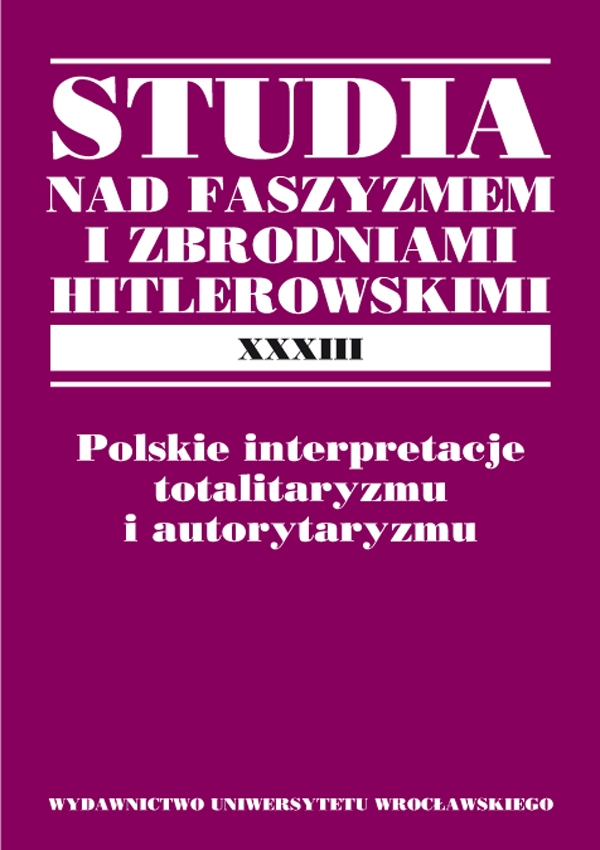

Artykuły

THE EARLIEST POLISH INTERPRETATIONS OF NAZISM 1922–1924
The article presents information, opinions and interpretations concerning the beginnings of National Socialism in Germany, particularly Bavaria, during the first half of the 1920s, that came from Leszek Malczewski, Polish Consul General in Munich. He was probably the first Polish eyewitness systematically observing the growth of National Socialism. At that time Nazism was not yet — according to Polish consul — a significant political force but simply one of the many Nationalist organizations with clearly anti-Semitic and racist profile. Neither Malczewski, nor anyone else, could have predicted at the outset of the 20s that in a dozen years the Nazi party with Adolf Hitler as a leader would seize power in Germany. Polish consul passed his own observations pertaining to National Socialism they were not always fully verified or totally credible, but certainly interesting and not devoid of accuracy to the Ministry of Foreign Affairs in Warsaw, relating in his reports various, though not all, aspects of activity and propaganda of the Nazis during the initial phase of the Hitlerite party’s existence. Malczewski investigated with particular attention Nazi preparations in Bavaria for an anti-government coup, usually correctly pointing out the political objectives of the group of conspirators with Hitler and general Erich Ludendorff at its head. When, at the beginning of November 1923, National Socialists put their subversive plans into final action, Polish consul focused his attention on the analysis of the results of the unsuccessful putsch both for the Nazis themselves and for a general political situation in Bavaria and even in Germany as a whole. Although Malczewski was rather skeptical as far as the political future of National Socialist party was concerned, he did not exclude the possibility that it can overcome internal crisis caused by the suppression of the attempted anti-government putsch by army and police forces. Even before November 1923 Malczewski appreciated Hitler’s oratory and propaganda skill and the model of party leadership introduced by him.